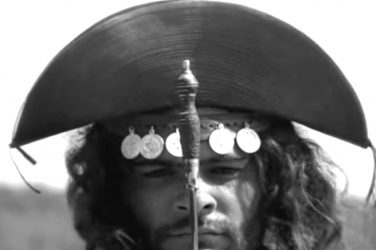January 24 will be a stress test for Brazilian democracy. That is when a federal appeals court in Porto Alegre will decide whether the country’s ex-president, Luiz Inácio Lula da Silva, will be allowed to stand as a candidate in this October’s presidential election.
International observers and citizens in the largest country in South America are mesmerized. Some 43 international journalists and 250 Brazilian media representatives will report from the Porto Alegre courthouse. And the trial will be streamed live online.
The level of public interest underscores the trial’s enormous political significance. The court’s verdict will not only determine Lula’s political future but also the course of the presidential and parliamentary election.
‘Voters Should Decide’
Well-known Brazilian columnist Clovis Rossi says Lula has squandered his political capital. “Even if Lula is found innocent, he was unable to control the insatiable appetite of his fellow party members,” he wrote in the Brazilian daily newspaper Folha de S. Paulo.
Rossi claims that Lula either approved of or ignored ongoing corruption within his party, both of which he calls “inexcusable political offenses.”
On July 12 of last year, the 72-year-old ex-president, who led the country from 2003 until 2010, was sentenced to nine years and six months in prison for money laundering and corruption.
Nevertheless, the verdict handed down by Judge Sergio Moro, as well as information made public during the course of the so-called Lava Jato (Car Wash) investigation into widespread corruption has done little to harm Lula’s popularity.
According to recent polls, Lula, the founder of the Workers’ Party (PT), enjoys high approval ratings. Roughly one-third of those Brazilians polled say they would vote for him on October 7.
Should the federal appeals court in Porto Alegre uphold Moro’s conviction of Lula, the country’s justice system would open a new chapter: It would be the first time in the country’s history that a head of government had ever been convicted of a crime and even face the threat of imprisonment.
Criticism from Germany
Observers suspect that a political power struggle is driving the tedious judicial fight. “Brazilian jurists have said that the courts are using the pretense of fighting corruption as a way to support the country’s powerful elite in their battle with the political left that they so despise,” wrote former German Justice Minister Herta Däubler-Gmelin in the latest issue of the magazine International Politics and Society (IPG).
Däubler-Gmelin accused Moro of political bias, criticizing the “striking lack of evidence” that his decision was based upon.
“The appeals court in Porto Alegre must reverse Moro’s decision,” she said. She claims that upholding the decision would not only compromise the credibility and efficacy of the fight against corruption, it would simultaneously do great damage to the rule of law in Brazil.
If Lula’s guilty verdict is upheld, he could make one last appeal, this time before the Brazilian Supreme Court in Brasília. Chances of such an appeal being heard by the court would increase greatly should the court in Porto Alegre fail to reach a unanimous decision.
The Clock Is Ticking
In light of numerous possible delays – whether through inspection of files, calls for evaluating the decision, all the way to a Supreme Court appeal – the big question now is whether a final verdict on Lula will be handed down by August 15. That is the deadline for all parties to register their candidates with the national election commission.
Brazil’s judiciary appears to be attaching great importance to that issue. Just two days before proceedings in Porto Alegre were set to begin, Brazil’s Ministry of Justice announced that it would be creating a new court district in the capital, Brasilia.
The new court will begin work on February 27 and be specialized in dealing with criminal offenses involving corruption, money laundering and crime syndicates.
Sociologist Celso Rocha de Barros says it is no coincidence. “After Wednesday’s decision, the ‘Lava Jato’ will have had two major political effects – toppling ex-President Dilma Rousseff’s government and barring Lula from running as a presidential candidate,” he predicted.
Writing in Folha de S. Paulo, he suggested, “If Lula falls, it would be better if others fell with him.”
DW














